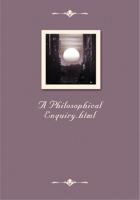"My lord," the queen then said, taking a step towards him, "it may be that as I am a woman, in spite of my desire and my will, I never find an opportunity to repay you what you are doing to me; but," she added, energetically striking her womb with her hand, "he whom I bear there, and whose life you should have respected, since you respect my Majesty so little, will one day revenge me for all these insults".
Then, with a gesture at once superb and threatening, she withdrew by Darnley's door, which she closed behind her.
At that moment a great noise was heard in the queen's room. Huntly, Athol, and Bothwell, who, we are soon about to see, play such an important part in the sequel of this history, were supping together in another hall of the palace, when suddenly they had heard outcries and the clash of arms, so that they had run with all speed. When Athol, who came first, without knowing whose it was, struck against the dead body of Rizzio, which was stretched at the top of the staircase, they believed, seeing someone assassinated, that the lives of the king and queen were threatened, and they had drawn their swords to force the door that Morton was guarding. But directly Darnley understood what was going on, he darted from the cabinet, followed by Ruthven, and showing himself to the newcomers--
"My lords," he said, "the persons of the queen and myself are safe, and nothing has occurred here but by our orders. Withdraw, then; you will know more about it in time. As to him," he added, holding up Rizzio's head by the hair, whilst the bastard of Douglas lit up the face with a torch so that it could be recognised, "you see who it is, and whether it is worth your while to get into trouble for him".
And in fact, as soon as Huntly, Athol, and Bothwell had recognised the musician-minister, they sheathed their swords, and, having saluted the king, went away.
Mary had gone away with a single thought in her heart, vengeance.
But she understood that she could not revenge herself at one and the same time on her husband and his companions: she set to work, then, with all the charms of her wit and beauty to detach the kind from his accomplices. It was not a difficult task: when that brutal rage which often carried Darnley beyond all bounds was spent, he was frightened himself at the crime he had committed, and while the assassins, assembled by Murray, were resolving that he should have that greatly desired crown matrimonial, Darnley, as fickle as he was violent, and as cowardly as he was cruel, in Mary's very room, before the scarcely dried blood, made another compact, in which he engaged to deliver up his accomplices. Indeed, three days after the event that we have just related, the murderers learned a strange piece of news--that Darnley and Mary, accompanied by Lord Seyton, had escaped together from Holyrood Palace. Three days later still, a proclamation appeared, signed by Mary and dated from Dunbar, which summoned round the queen, in her own name and the king's, all the Scottish lords and barons, including those who had been compromised in the affair of the "run in every sense," to whom she not only granted full and complete pardon, but also restored her entire confidence. In this way she separated Murray's cause from that of Morton and the other assassins, who, in their turn, seeing that there was no longer any safety for them in Scotland, fled to England, where all the queen's enemies were always certain to find a warm welcome, in spite of the good relations which reigned in appearance between Mary and Elizabeth. As to Bothwell, who had wanted to oppose the assassination, he was appointed Warden of all the Marches of the Kingdom.
Unfortunately for her honour, Mary, always more the woman than the queen, while, on the contrary, Elizabeth was always more the queen than the woman, had no sooner regained her power than her first royal act was to exhume Rizzio, who had been quietly buried on the threshold of the chapel nearest Holyrood Palace, and to have him removed to the burial-place of the Scottish kings, compromising herself still more by the honours she paid him dead,than by the favour she had granted him living.
Such an imprudent demonstration naturally led to fresh quarrels between Mary and Darnley: these quarrels were the more bitter that, as one can well understand, the reconciliation between the husband and wife, at least on the latter's side, had never been anything but a pretence; so that, feeling herself in a stronger position still on account of her pregnancy, she restrained herself no longer, and, leaving Darnley, she went from Dunbar to Edinburgh Castle, where on June 19th, 1566, three months after the assassination of Rizzio, she gave birth to a son who afterwards became James VI.















